Summer Institute continues to inspire future medical professionals
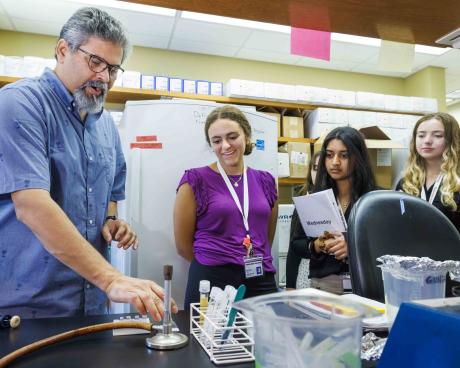

TALLAHASSEE, Fla. - Sixty-one rising high school juniors and seniors with an interest in medical careers are glimpsing the path to medical school – and what to expect when they get there – through their participation in the Summer Institute at the Florida State University College of Medicine.
Since its 2008 inception under the guidance of Thesla Berne-Anderson, executive director of Undergraduate Outreach and Precollege Programs, 880 high school students have participated in the immersive program. Berne-Anderson is the founder of the award-winning SSTRIDE (Science Students Together Reaching Instructional Diversity & Excellence) outreach program, the driving force behind Summer Institute.
This year’s participants represent 39 Florida high schools across 17 counties, in addition to one out-of-state student. The residential camp runs over three, weeklong sessions, the last of which is scheduled for July 9-14.
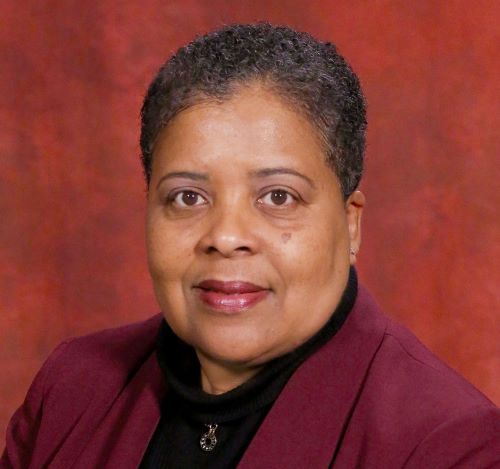
Throughout the week, the students are mentored by College of Medicine students, instructed by professors and staff and exposed to a broad range of topics – including primary care, rural medicine and geriatrics – both in the classroom and through shadowing experiences at hospitals, medical practices and the Tallahassee Senior Center. They are also introduced to medical research by the college’s Biomedical Sciences department, and they present group research projects on their final day.
Sessions on professionalism, medical ethics and health-care disparities are a part of the curriculum, in addition to hands-on experiences with vital signs, first aid and CPR, suturing and the popular anatomy lab tour.
“It’s designed to expose them what it’s like to be a medical student and everything about our mission,” Berne-Anderson said. “These are high-achieving students, so we want to give them exposure and experiences beyond what they’re getting in the classroom. We’re able to do that through the diversity of the experience we provide… There’s so much happening in one week.”
A panel on college admissions, pre-health care curriculum discussion with College of Medicine advisors, and guidance on financial aid and the application process are equal parts practical and invaluable.
From breakfast at 7:30 a.m. to lights out in the dormitory at 11 p.m., there is little time for rest for the participants, though there is time for team-building activities at the FSU Reservation, a game night and a bowling outing.
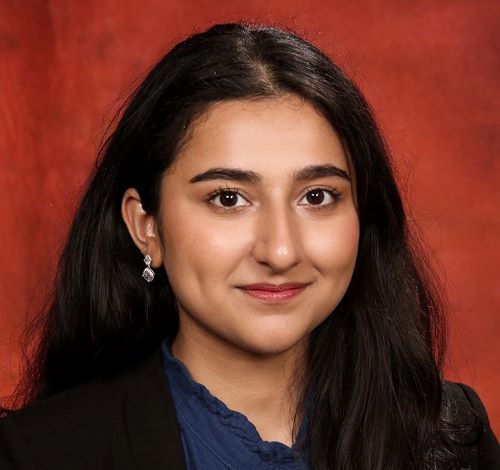
“The best part about Summer Institute was the immersive nature of the experience,” said Khadeja Ahmed, a first-year FSU medical student who attended the program in 2017 and graduated from Tallahassee’s Maclay School in 2018. She first learned about it while participating in SSTRIDE at Fairview Middle School. “It immediately sparked my interest.”
She wasn’t alone in her own home. Both her older and younger sister participated in SSTRIDE and attended Summer Institute.
“While at Summer Institute, I was able to understand our community’s plights in a deeper way,” Ahmed said. “The summer experience allowed me to critically think about the issues we face and how to implement health projects the following school year that would be effective and long lasting.”
The foundational benefit of the program is not lost on second-year College of Medicine student Alexis Kendall, who attended Summer Institute as a rising high school junior at rural Marianna High School a decade ago.
“Coming to FSU for the program was my first exposure to a research project, to learn how to properly formulate a question, write it out and actually do the research, present to other people and work in groups,” she said. “I didn’t realize how much I would need that going into my undergrad.”
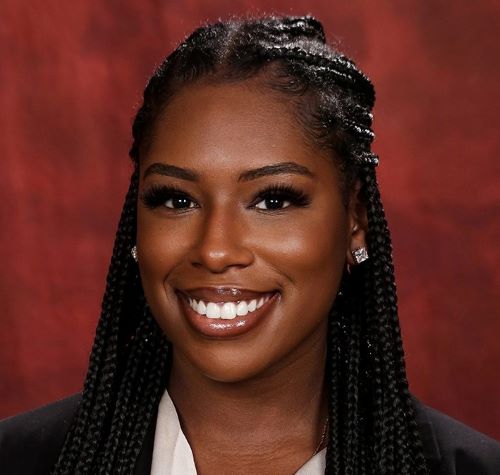
Kendall completed her undergraduate degree in health sciences at Florida A&M University, where she served as the student coordinator of USSTRIDE, the college component of the outreach program, which she first learned about at Summer Institute.
“I talk about [Summer Institute] all the time,” she added. “That was my introduction. Had I not done it, I would have not known about USSTRIDE, and had I not known about USSTRIDE, I don’t think FSU would have been a big part of my journey. I probably wouldn’t have had the connections and the confidence to apply to the medical school.”
Some of those connections were with her medical student mentors.
“They had a lot of representation as far as minority medical students working with us; men and women from various cultures and backgrounds,” Kendall said. “They shared their statistics with us, like their ACT scores, MCAT scores and grades… That made me realize it was possible for me coming from Marianna.”
Kendall kept track of her mentors as they graduated from the College of Medicine and moved on to residency and practice. She hopes to have a similar influence as a mentor during the final session of 2023.
“It was definitely necessary to make it a full-circle moment,” she said. “I always said when I was doing [Summer Institute], ‘I want be like them. I want to do what they’re doing.’ This is my chance to be on the other end of that.”
Fifteen years in, Summer Institute continues to influence the next generation of medical professionals.
“It’s a community of practice,” Berne-Anderson said of the program. “It’s where like-minded students come together and they learn, they collaborate, they experience these things together. They develop socially, personally and professionally. When they leave here, they have friends for life.”
Summer Institute is open to students who have completed their sophomore or junior years and carry a minimum 3.3 unweighted grade-point average. Applicants must submit a 500-word essay and letters of recommendation from a teacher and guidance counselor. A limited number of scholarships are available to Florida residents.
Additional information about Summer Institute can be found on the College of Medicine website.
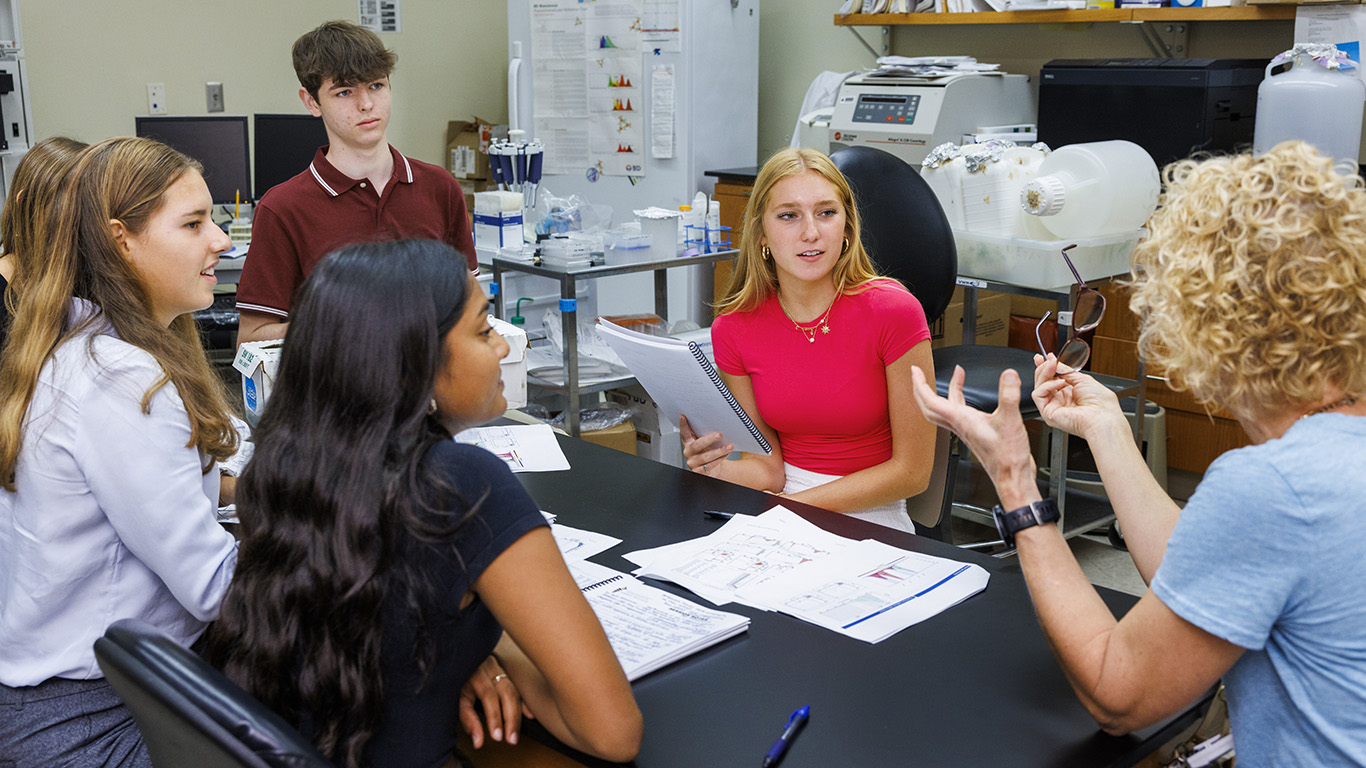
Photo at top right: Akash Gunjan, associate professor of biomedical sciences, introduces students to research in his lab.
Spotlight photo on Home page: Professor Debra Danforth, director of the Clinical Learning Center at the College of Medicine, introduces the students to clinical experience with the center's training dummy, Harvey.
(Photos by Colin Hackley for the FSU College of Medicine.)
